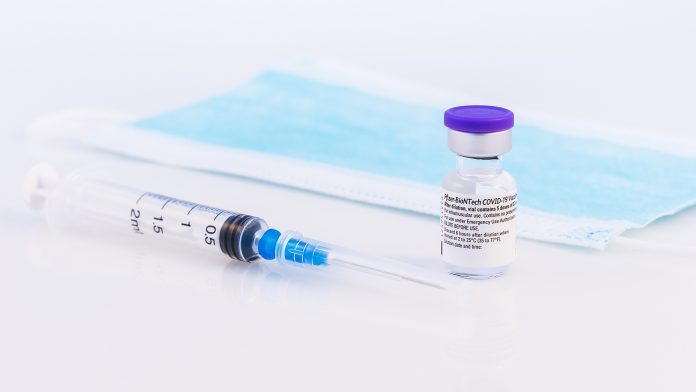
A novel study has revealed that two doses of the Pfizer COVID vaccine achieve 90% effectiveness against hospitalisations for at least six months against all SARS-CoV-2 variants, even the Delta.
The investigation, conducted by industry experts from Kaiser Permanente, revealed that two doses of the Pfizer COVID vaccine provide those inoculated with exceptional protection against hospitalisation from all SARS-CoV-2 variants. Despite the efficacy of the vaccine against infections waning throughout the period of the study – declining from 88% after one month following vaccination to 47% after six months – its effectiveness against hospitalisations remained at 90% overall.
The findings of the study, which are published in The Lancet, confirm prior preliminary reports from the US Centers for Disease Control and Prevention (CDC) and the Israel Ministry of Health, both of which identified reductions of the Pfizer COVID vaccine against infection after approximately six months.
The Kaiser Permanente team believes this signifies how imperative receiving full COVID-19 vaccinations are and that monitoring vaccine effectiveness worldwide can help determine which populations should be prioritised for booster jabs.
Dr Sara Tartof, the lead author of the study from the Kaiser Permanente Southern California Department of Research & Evaluation, said: “Our study confirms that vaccines are a critical tool for controlling the pandemic and remain highly effective in preventing severe disease and hospitalisation, including from the Delta and other variants of concern.
“Protection against infection does decline in the months following a second dose. While this study provides evidence that immunity wanes for all age groups that received the vaccine, the CDC Advisory Committee on Immunization Practices has called for additional research to determine if booster shots should be made available to all age groups eligible for this vaccine. In line with the recent FDA and CDC recommendations, considerations for booster shots should take global COVID-19 vaccine supply into account as people in many countries around the world have not yet received a primary vaccination series.”
Mitigating hospitalisations with the Pfizer COVID vaccine
To analyse the proficiency of the Pfizer COVID vaccine, the team employed 3,436,957 electronic health records from the Kaiser Permanente Southern California (KPSC) health system between December 4, 2020, and August 8, 2021. This comprehensive data enabled the researchers to examine the effectiveness of the Pfizer vaccine against SARS-CoV-2 infections and hospitalisations against all variants. The study illuminated that, during this period, 5.4% of the people with two vaccinations were infected, with 6.6% of these cases resulting in hospitalisation, with the average time from being fully vaccinated being three to four months.
Next, the team performed a whole genome sequencing and viral lineage analysis of 8,911 PCR-positive SARS-CoV-2 samples from the study cohort, finding that the Delta variant was responsible for 28% of the positive cases. The amount of positive Delta cases rose during the study from 0.6% in April 2021 to 87% by July 2021, highlighting that the SARS-CoV-2 Delta strain has become the most prominent in the US.
Two doses of the Pfizer COVID Vaccine showed 93% effectiveness against Delta infections at one month following vaccination, falling to 53% after four months. Against infection from other strains, the vaccine was 97% effective after one month, dropping to 67% after four months. Nevertheless, protection against hospitalisation from the Delta variant remained at 93% throughout the study, a high efficacy.
Dr Luis Jodar, Senior Vice President and Chief Medical Officer, Pfizer Vaccines, said: “Our variant-specific analysis clearly shows that the Pfizer COVID vaccine is effective against all current variants of concern, including Delta. COVID-19 infections in people who have received two vaccine doses are most likely due to waning and not caused by Delta or other variants escaping vaccine protection.”
Limitations of the study
The researchers have explained that one of the limitations is that due to the study population not being randomised, they could not determine causal relationships between vaccination and COVID-19 outcomes. Furthermore, the team did not have data on adherence to mask guidelines, social interactions, occupation, and disease rates in the study population, which may potentially affect the likelihood of contracting and being tested for SARS-CoV-2 infection.
Finally, the vaccine effectiveness estimates against SARS-CoV-2 infections and hospitalisation may be impacted by mild or asymptomatic infections, meaning they are not directly comparable to effectiveness estimates against asymptomatic disease. Sequencing was more likely to fall among the vaccinated because of lower viral loads, leading to an overestimate of the variant-specific effectiveness.
























